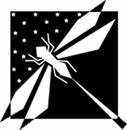What after C++?
-
Topics
-
0
-
Muzzy2002 ·
Posted in New Builds and Planning0 -
modern_officer ·
Posted in General Discussion4 -
3
-
Coding2bLazy ·
Posted in Troubleshooting8 -
Thezgamer75 ·
Posted in Troubleshooting1 -
6
-
9
-
1
-
rich_az ·
Posted in Graphics Cards2
-
-
play_circle_filled

Latest From Linus Tech Tips:
The BRIGHTEST Monitor We've EVER Seen - Sun Vision rE rLCD Display
-
play_circle_filled

Latest From ShortCircuit:
The World's Fastest CPU (Technically...) - Intel i9-14900KS








.thumb.jpg.749df3daf3848c20ca78c78be2ad63d0.jpg)






Create an account or sign in to comment
You need to be a member in order to leave a comment
Create an account
Sign up for a new account in our community. It's easy!
Register a new accountSign in
Already have an account? Sign in here.
Sign In Now